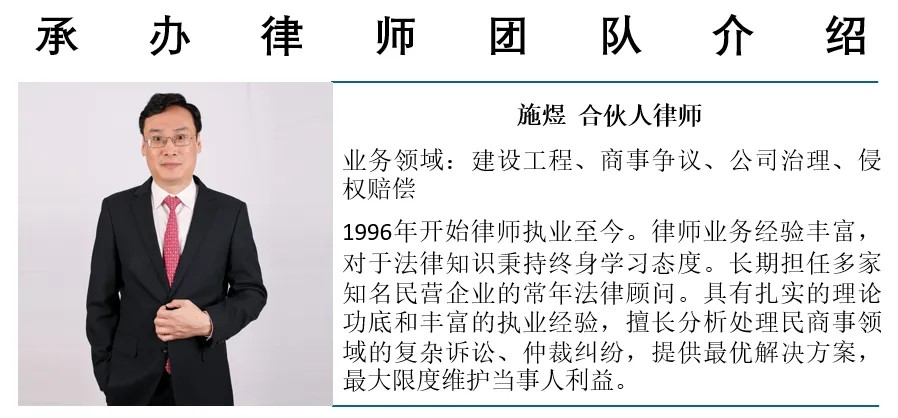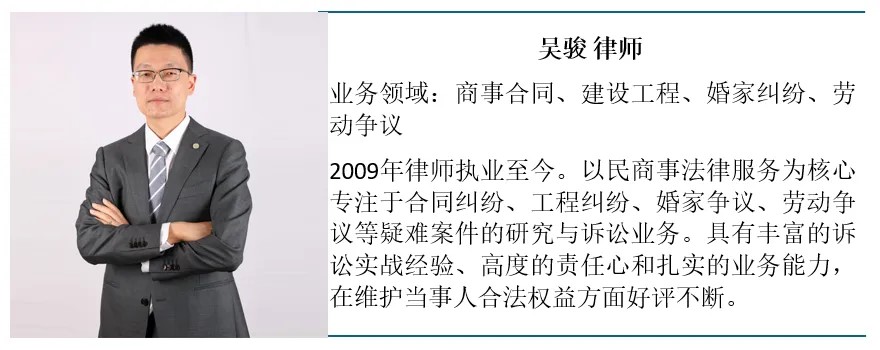

Originally, drinking together at a gathering is a delightful thing in life. Just think of Li Bai, the celestial poet, who exclaimed, "My flower - dappled horse, my furs worth a thousand, Call the boy to take them out and exchange for good wine, That we may drown away the sorrows of ten thousand years!" Truly, it is a joyous affair. However, in reality, misfortunes caused by drunkenness lead to even more troubles. What's worse, cases ending up in court are frequently reported in the newspapers. This year, the legal team led by Lawyer Shi Yu from our law firm successfully represented a case of infringement claim against fellow drinkers, which once again sounds the alarm for such incidents.
I. The Cause of the Case
One day towards the end of 2023, at 5:30 p.m., Di and a group of 10 colleagues went to a restaurant for a dinner gathering, where they consumed a certain amount of Baijiu. At around 7 p.m., Di said he needed to use the restroom and left the table. After that, his colleagues noticed that Di was walking unsteadily and was extremely weak. By the time he reached the door, he could no longer stand. Some people immediately stepped forward to support him, brought a chair for him to sit on, and then moved him to an empty private room across the way, where he was laid on several chairs. During this time, Di vomited and was physically weak but did not lose consciousness. At around 7:12 p.m., a colleague used Di's phone to contact Di's wife, informed her of the situation, and asked her to come to the restaurant. Later, someone called again to tell her to bring Di's medical insurance card. At around 7:50 p.m., Di's wife arrived at the restaurant. Seeing Di and after asking about the situation, she noticed that Di had chest discomfort, so she immediately called 120 for emergency medical treatment. However, despite all efforts, at 9:35 p.m., Di was pronounced clinically dead, and the cause of death was diagnosed as "acute myocardial infarction".
II. The Plaintiff's Claims
III. The Court's Opinion
According to the law, if a person, due to their fault, causes damage to the civil rights and interests of others, they shall bear tort liability. The operator of a business premises who fails to fulfill the duty of safety assurance and causes damage to others shall also bear tort liability. In this case, Di showed physical discomfort after drinking. Although it was unclear before seeking medical treatment whether it was caused by drinking or his own illness, considering that the nine fellow drinkers should have noticed that the more likely cause of Di's discomfort was a sudden illness. And rationally speaking, an illness, especially a sudden one, requires immediate medical attention. Additionally, the fact that the nine fellow drinkers, six minutes after the first call to Di's wife, called again to ask her to bring the medical insurance card indicates that they were aware of Di's need for medical treatment. However, in reality, there was a one - hour interval from the discovery of Di's discomfort to the call of 120. Given that Di had an acute myocardial infarction less than 10 minutes after being sent to the hospital, the actions of the nine fellow drinkers did show negligence in delaying the rescue time to a certain extent, which was related to the damage consequence of Di's death. They should bear corresponding tort liability according to the degree of their fault. Based on the consistency of the actions and awareness of the nine fellow drinkers, it can be confirmed that they constituted joint negligence. Considering the degree of fault, the court determined that the nine fellow drinkers jointly and severally bear 10% of the liability for the plaintiff's damages. The internal liability scope among the nine can be resolved separately after fulfilling the payment obligation. As the operator of the business premises, the defendant, [Company Name], should fulfill necessary safety - assurance obligations such as prevention and rescue when the service recipients in the business premises face objective and real dangers due to others or themselves. Now, the defendant, [Company Name], failed to fulfill the safety - assurance obligation within a reasonable and achievable limit, which was also related to the damage consequence of Di's death. It should also bear corresponding tort liability according to the degree of fault. The court, based on the degree of fault, determined that the defendant, [Company Name], should bear 2% of the liability for the plaintiff's damages.
IV. Lawyer's Reminder
This tort claim case has a simple origin but is rather complex in litigation, especially due to the large number of parties involved. There are four plaintiffs in this case, namely Di's parents, wife, and child. As Di's legal heirs, they initiated the tort claim lawsuit. There are as many as 12 defendants in this case. Besides the nine fellow drinkers, there is also the operator of the restaurant. Since the situation of the operator was not clear, the handling lawyer included all related parties as defendants to avoid omitting relevant parties and to protect the interests of the clients to the greatest extent. Eventually, based on the clarification of the facts, the court's judgment supported the relevant claims of the plaintiffs. In practice, liability for personal injury caused by drinking is generally divided according to different circumstances. Different liability determinations are made in situations such as forced persuasion to drink, drinking during work hours, accidental death of a drunk person, and death due to intoxication. When drinking together, the degree of fulfilling the duty of care varies depending on the identity of the person. In cases of death due to intoxication, if fellow drinkers fail to fulfill reasonable safety - attention and care duties, they should bear corresponding fault liability for the death result. At the same time, considering that drinking is a subjective act, the deceased, as a person with full capacity for civil conduct, should have a necessary duty of care for their own health. Moreover, among fellow drinkers, the convener and organizer have a higher degree of fulfilling the duty of care, while participants have a lower degree. Secondly, when a fellow drinker has a special professional identity, they need to fulfill a duty of care commensurate with their professional level. Of course, during the process of drinking together, fellow drinkers only bear compensation liability within the scope of ordinary duty of care and what can be foreseen, and they should not be imposed with liability for damage consequences of unexpected and sudden situations that are unforeseeable. In conclusion, cases where fellow drinkers are held liable serve as a reminder: A little drink can be a delight, but don't overindulge; when drinking together, care for each other, and safety should be the top priority.
V. Legal Basis
Civil Code of the People's Republic of China
Article 1165** Where a person, through fault, causes damage to the civil rights and interests of another person, he/she shall bear tort liability.
Article 1168** Where two or more persons jointly commit a tortious act and cause damage to another person, they shall bear joint liability.
Article 1181** Where the infringed person dies, his/her close relatives shall have the right to claim that the tortfeasor bear tort liability. Where the infringed person is an organization, and the organization is split or merged, the organization that succeeds to its rights shall have the right to claim that the tortfeasor bear tort liability.
Article 1198** Where the operator or manager of business premises or public places such as hotels, shopping malls, banks, stations, airports, stadiums, entertainment venues, etc., or the organizer of a mass activity fails to fulfill the duty of safety protection and causes damage to another person, he/she shall bear tort liability.


